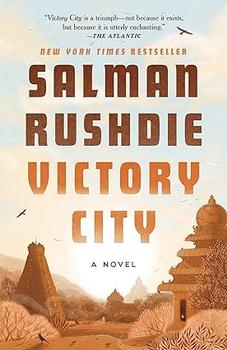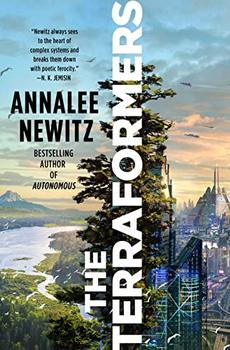Summary | Excerpt | Reviews | Beyond the book | Read-Alikes | Genres & Themes | Author Bio

The bestselling author of The Small Backs of Children offers a vision of our near-extinction and a heroine - a reimagined Joan of Arc - poised to save a world ravaged by war, violence, and greed, and forever change history, in this provocative new novel.
In the near future, world wars have transformed the earth into a battleground. Fleeing the unending violence and the planet's now-radioactive surface, humans have regrouped to a mysterious platform known as CIEL, hovering over their erstwhile home. The changed world has turned evolution on its head: the surviving humans have become sexless, hairless, pale-white creatures floating in isolation, inscribing stories upon their skin.
Out of the ranks of the endless wars rises Jean de Men, a charismatic and bloodthirsty cult leader who turns CIEL into a quasi-corporate police state. A group of rebels unite to dismantle his iron rule—galvanized by the heroic song of Joan, a child-warrior who possesses a mysterious force that lives within her and communes with the earth. When de Men and his armies turn Joan into a martyr, the consequences are astonishing. And no one - not the rebels, Jean de Men, or even Joan herself - can foresee the way her story and unique gift will forge the destiny of an entire world for generations.
A riveting tale of destruction and love found in the direst of places - even at the extreme end of post-human experience - Lidia Yuknavitch's The Book of Joan raises questions about what it means to be human, the fluidity of sex and gender, and the role of art as a means for survival.
Yuknavitch's novel draws its inspiration not only from literary and historical figures, but also from feminist and queer theory, politics, environmental studies, and philosophy. It touches on numerous issues of gender, environmental degradation, inequality, injustice, and the role of humans in ensuring their own survival – or destruction. Obviously reading The Book of Joan is not a light or easy endeavor; the braided narratives and the occasionally grotesque subject matter can make for ponderous, if crucial, reading. But for some readers, Yuknavitch's novel may provide, if not comfort, then at least a form of catharsis, an opportunity to envision and absorb the worst the future might hold and galvanize themselves to prevent such a future from coming to pass...continued
Full Review
(647 words)
This review is available to non-members for a limited time. For full access,
become a member today.
(Reviewed by Norah Piehl).
In Yuknavitch's near-future vision, a character inspired by Joan of Arc seems poised to be the savior of an all-but-doomed Earth. Yuknavitch is far from the first writer and artist to be inspired by the fifteenth-century French heroine. Images of Joan of Arc have appeared in opera, film, literature, art, and even video games and comics over the past six centuries. The following are just a few examples of Joan's influence on culture - both traditional and popular - over the years:
Dramatic Art
 In 1801, German playwright Friedrich Schiller imagined Joan as a romantic heroine in his play Die Jungfrau von Orleans. Schiller's play inspired more than eighty other Joan-related plays in the nineteenth century, as well as operas ...
In 1801, German playwright Friedrich Schiller imagined Joan as a romantic heroine in his play Die Jungfrau von Orleans. Schiller's play inspired more than eighty other Joan-related plays in the nineteenth century, as well as operas ...
This "beyond the book" feature is available to non-members for a limited time. Join today for full access.

If you liked The Book of Joan, try these:

by Salman Rushdie
Published 2024
The epic tale of a woman who breathes a fantastical empire into existence, only to be consumed by it over the centuries—from the transcendent imagination of Booker Prize–winning, internationally bestselling author Salman Rushdie.

by Annalee Newitz
Published 2023
From science fiction visionary Annalee Newitz comes The Terraformers, a sweeping, uplifting, and illuminating exploration of the future.
Too often we enjoy the comfort of opinion without the discomfort of thought.
Click Here to find out who said this, as well as discovering other famous literary quotes!